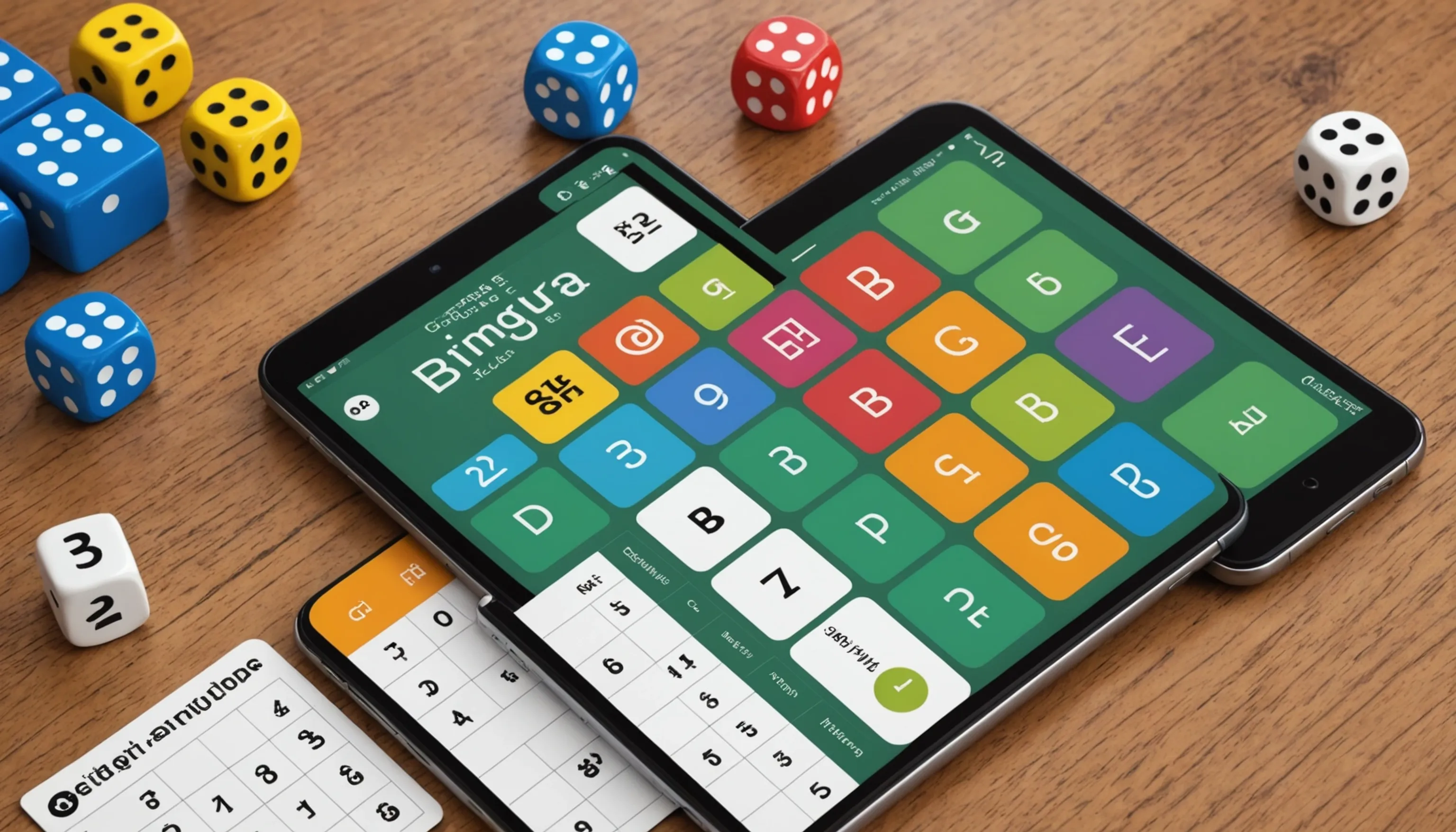Algebra Games for Teenagers
 HvWHenry van Wagenberg
HvWHenry van Wagenberg
Engaging Algebra Games for Teens
Engaging algebra games for teens can transform the way students approach mathematics. These games not only make learning fun, but they also reinforce critical concepts such as solving equations, working with variables, and understanding functions. Whether through online platforms or hands-on board games, these activities encourage collaboration and friendly competition among students.
By incorporating game-based learning, teens can develop their algebra skills in a relaxed environment, making it easier to grasp challenging topics. Plus, the interactive nature of these games promotes higher retention rates and boosts confidence in their math abilities.
Why Use Games to Teach Algebra?
Using games to teach algebra offers numerous benefits that can significantly enhance the learning experience for students. Firstly, games promote active engagement, allowing teens to immerse themselves in the material rather than passively absorbing information. This active participation fosters a deeper understanding of algebraic concepts, making them easier to retain.
Moreover, games create a low-pressure environment where students can experiment with different strategies without the fear of making mistakes. This encourages a growth mindset, as teens learn that errors are a natural part of the learning process. By solving problems in a game format, students develop critical thinking and problem-solving skills that are vital for success in algebra.
Another advantage is the social aspect of game-based learning. When students play in groups, they are more likely to collaborate, communicate, and share ideas. This teamwork not only reinforces their understanding of algebra but also builds valuable interpersonal skills. Additionally, incorporating competition can motivate students to improve their performance and engage more deeply with the content.
Finally, games can be tailored to various learning styles, allowing teachers to reach a diverse group of students effectively. Whether through visual aids, hands-on activities, or technology-based platforms, games can cater to different preferences and learning paces. Overall, using games to teach algebra provides a dynamic and enjoyable way to master essential mathematical concepts.

Top Algebra Games for Teenagers
Here are some of the top algebra games for teenagers that make learning math enjoyable:
- Algebra Bingo: A fun twist on the classic bingo game, where students solve algebraic equations to mark off their cards.
- Math Jeopardy: A competitive quiz game that covers a range of algebra topics, encouraging teamwork and quick thinking.
- Dragon Box Algebra: An engaging app that teaches algebra concepts through puzzles and challenges, making learning interactive.
- Prodigy Math: An online role-playing game that aligns with curriculum standards, allowing students to practice algebra while exploring a fantasy world.
- Math Dice: A hands-on game that involves rolling dice to create equations, fostering creativity and mental math skills.
These games not only reinforce algebra skills but also create a positive learning environment that keeps teens motivated.
Online Algebra Games
Online algebra games provide an interactive platform for teenagers to enhance their math skills in a fun and engaging way. These games are designed to cater to various learning styles, making them an excellent resource for both students and teachers. Here are some noteworthy options:
- Coolmath Games: This website offers a variety of math-based games, including algebra puzzles that challenge students to think critically while having fun.
- IXL: A comprehensive learning platform that includes interactive algebra games along with practice questions tailored to individual learning needs. This personalized approach helps students grasp concepts at their own pace.
- Kahoot! This game-based learning platform allows teachers to create quizzes that can be turned into competitive games. Students can answer algebra questions in real-time, making learning collaborative.
- Math Playground: This site features numerous algebra games that help students practice fundamental concepts through engaging activities and problem-solving challenges.
- Prodigy Math: An online role-playing game that adapts to students' skill levels, offering them algebra-related quests and problems to solve while progressing through an exciting fantasy world.
These online games not only reinforce algebraic concepts but also create a dynamic learning experience that encourages students to develop a positive attitude toward mathematics.

Board Games for Algebra Skills
Board games can be an excellent way to develop algebra skills in a fun and interactive setting. These games not only foster critical thinking but also encourage teamwork and communication among players. Here are some popular board games that effectively teach algebra concepts:
- Algebra Tiles: This hands-on game uses physical tiles to represent variables and constants, allowing players to visualize and solve algebraic equations. It's a great way to understand the fundamentals of algebra.
- Math Dice: While primarily a game for practicing arithmetic, it can be adapted to include algebraic concepts. Players roll dice to create equations, promoting mental math and problem-solving skills.
- 24 Game: This fast-paced game challenges players to use their math skills to create equations that equal 24 using four numbers. It encourages quick thinking and strategic problem-solving, which are essential in algebra.
- Sum Swamp: Although aimed at younger audiences, this game introduces basic algebraic concepts through addition and subtraction in a fun, swamp-themed adventure.
- Mathopoly: A math-themed twist on the classic Monopoly game where players must solve algebra problems to advance. This game combines strategy with algebra practice.
Incorporating these board games into learning can make algebra enjoyable and less intimidating, helping students build confidence in their mathematical abilities.
Creating Your Own Algebra Games
Creating your own algebra games can be a fun and effective way to engage teenagers in learning math. Here are some simple steps to design your own games:
- Identify Learning Objectives: Start by determining the specific algebra concepts you want to teach, such as solving equations or working with inequalities.
- Choose a Game Format: Decide if you want to create a board game, card game, or digital game. Each format offers unique opportunities for interaction.
- Develop Rules: Create clear and concise rules that guide gameplay while encouraging critical thinking and problem-solving. Keep the game challenging but fun.
- Incorporate Algebra Problems: Integrate a variety of algebra problems into the gameplay. For example, players could solve equations to advance or earn points.
- Test and Revise: Playtest your game with friends or family to identify areas for improvement. Gather feedback and make necessary adjustments.
By creating your own algebra games, you not only reinforce learning but also foster creativity and collaboration among students.
Tips for Designing Fun Algebra Games
Designing fun algebra games requires a thoughtful approach to ensure they are both educational and engaging. Here are some tips to help you create effective games that resonate with teenagers:
- Know Your Audience: Understand the interests and skill levels of the teens you are designing for. Incorporate themes or topics that will capture their attention, such as sports, music, or popular culture.
- Keep It Simple: While it’s important to challenge players, ensure the rules are straightforward. Complicated rules can lead to frustration and disengagement.
- Encourage Collaboration: Design games that promote teamwork and communication. This can foster social interaction and help students learn from each other.
- Incorporate Technology: Consider using online platforms or apps that facilitate interactive gameplay. Digital tools can enhance engagement and provide instant feedback.
- Make It Competitive: Introducing elements of competition, such as points or timed challenges, can motivate students to perform better while having fun.
- Include Rewards: Offer small prizes or incentives for achievements within the game. This can boost motivation and encourage participation.
- Solicit Feedback: After playing, ask for players' opinions on the game. Their insights can help you refine the design and improve future iterations.
By following these tips, you can create enjoyable algebra games that make learning math an exciting experience.
Incorporating Games into Algebra Lessons
Incorporating games into algebra lessons can significantly enhance student engagement and understanding. Here are several strategies to effectively integrate games into your teaching:
- Start with Warm-Up Games: Begin each lesson with a quick, fun game that reviews previous concepts. This can help activate prior knowledge and prepare students for new material.
- Use Games for Practice: Incorporate games during practice sessions to reinforce new concepts. For example, use Jeopardy or Bingo to review equations and functions in a fun, competitive manner.
- Group Activities: Organize students into small groups and have them compete in solving algebra problems. This promotes collaboration and allows students to learn from one another.
- Utilize Technology: Take advantage of online platforms that offer interactive algebra games. Tools like Kahoot! or Quizizz allow students to engage in real-time quizzes, making learning dynamic and enjoyable.
- Integrate Storytelling: Design games that incorporate storytelling elements to make algebra concepts more relatable. For example, create a scenario where students must solve equations to progress through a mystery.
- Reflect and Discuss: After playing, hold a reflection session where students can share their experiences and what they learned. This reinforces concepts and fosters a deeper understanding.
By strategically incorporating games into algebra lessons, you can create a lively learning environment that motivates students and improves their math skills.
